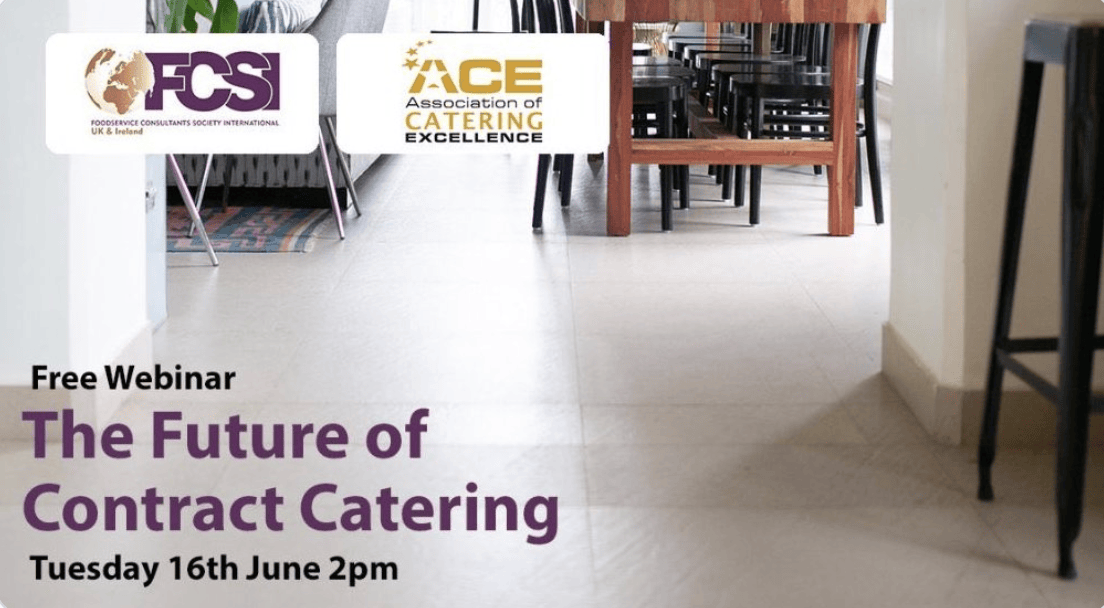
The event was chaired by Karen Fewell and the panel members were Matthew Merritt-Harrison FCSI, managing partner at Merritt-Harrison Catering Consultancy and chair of FCSI UK&I, Liz Rose FCSI, principal design consultant at A&E Catering Design, Noel Mahony, chief executive at BaxterStorey and Wendy Bartlett, executive chairman at Bartlett Mitchell. Sue Thompson represented ACE.
Contract catering covers the spectrum from one-off events to workplace catering and the lockdown measures announced had an immediate effect on the sector. Nobody was going to work and events and gatherings of people were cancelled.
As things slowly start to open up again the questions is how will contract catering come back. FCSI UK&I chair Matthew Merritt-Harrison painted a realistic picture. “We’re going to see major changes over the next two years, very serious challenges going forward,” he said. “There’s going to be lower levels of sales, as customers work from home, potentially longer opening hours and social distancing. So, there will be increased costs for the caterers, but reduced income. That is going to result in cash flow and working capital problems for some.”
The prism of panic
Wendy Bartlett of Bartlett Mitchell emphasised the positive traits of contract catering. “We are very agile and we do adapt really quickly – so do our teams,” she said. “I would like people to think more positively about the future, and the fact that what we’re all seeing in this prism of panic will not necessarily be what happens going forward.
Merritt-Harrison added that another positive was that issues over the recruitment and retention of staff would likely disappear, but higher overheads could see workforce, especially in head office, being reduced.
It was agreed that Covid-19 has not just had a massive financial impact on contract catering. “Ultimately the UK economy is suffering, it’s not just hospitality or indeed contract catering”, said Mahony. Client companies may well be looking to reduce costs further down the line. However, Noel Mahony of BaxterStorey spoke of how supportive the majority of clients have been. “They see the [workplace] café or restaurant reflecting the culture of their organisation. They want employees to feel safe coming back to work, see the building as a safe place,” he says.
Back to design principles
The design of the kitchen with safe distancing requirements was also discussed. “We’re going back to design principles and how things used to be a long time ago, Liz Rose FCSI at A&E Catering Design explained. “We had controlled staff entry, hygiene stations for staff as they came in, clear demarcation of area where they got changed before they entered the kitchen. Now there are areas where PPE needs to put on and managed, a lot more controlled areas that have to be created in the kitchen.”
Listeners to the webinar were interested in the role of technology in post-lockdown kitchens. “Equipment has the ability to talk to each other, we have remote access – you can switch on ovens from home,” says Rose. “There’s also a lot of task management software out there, which could be used, for example, to manage how well a kitchen had been sanitised and how regularly. Some operators will begin to embrace that technology more closely, because it creates an audit trail, which in turn inspires confidence.”
In summing up Merritt-Harrison called upon his long experience in foodservice. “We will come through this. A year, maybe two, this is not the end of the world. We’ve had challenges all through history and we will come out stronger and better.”
Jacquetta Picton
